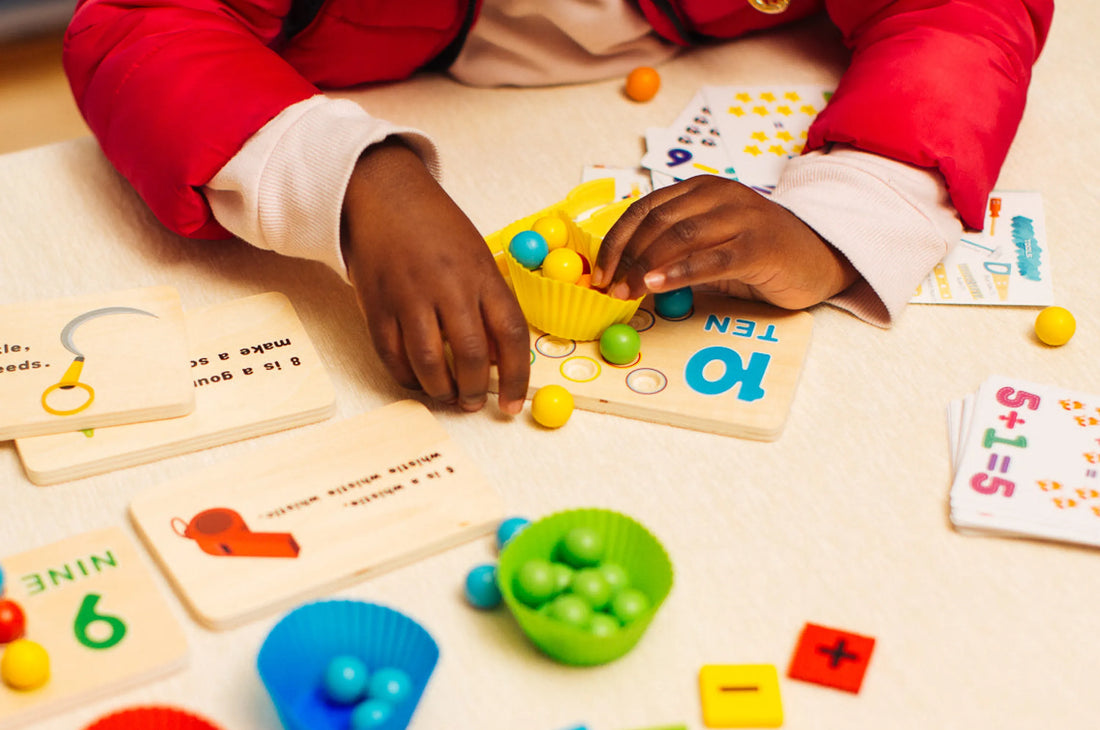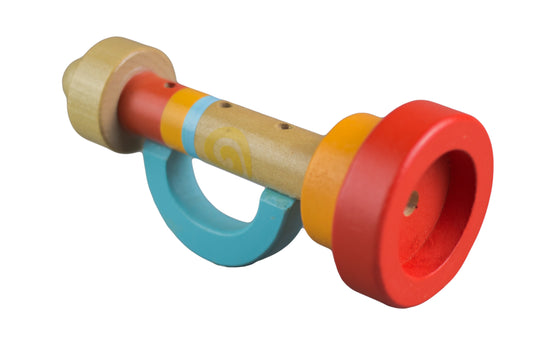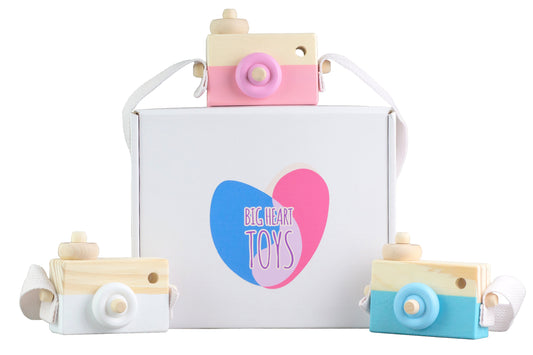Unlock the potential of your child's learning journey with carefully chosen educational math games. Discover 10 compelling benefits as we delve into the significance of interactive play in fostering essential mathematical skills and cognitive development. From improved problem-solving to enhanced critical thinking, games of this style make learning enjoyable and impactful for young minds.
What Are Educational Math Games?
Educational math games are interactive tools designed to make learning math enjoyable for children. They combine entertainment with educational content, fostering a positive approach to mathematics. These games often involve puzzles, challenges, and strategic thinking, promoting skill development in areas like problem-solving and critical thinking.
Big Heart Toys recognizes the significance of merging fun and learning. Our products integrate math games that cater to different age groups and skill levels. By infusing play with educational content, Big Heart Toys aims to create a stimulating environment where children can grasp mathematical concepts effortlessly while having a great time.
What Are the Benefits of Educational Math Games for Children?
Educational math games offer a dynamic approach to learning, combining fun with fundamental skill development. These games can bring a wide range of benefits to children's education, shaping their mathematical journey in engaging ways.
1. Improves Mathematical Skills
Educational math games immerse children in a dynamic learning environment, offering hands-on experiences that reinforce key mathematical concepts. This can result in a substantial improvement in overall proficiency.
Young learners typically learn best through hands-on experiences, and math games provide that as well as engagement, making the perfect combination to help children really grasp mathematical concepts.
2. Enhances Problem-Solving Abilities
Because they’re filled with challenges and puzzles, math games are the perfect ground for nurturing effective problem-solving strategies. As children work through these scenarios, they’re finely tuning their analytical thinking skills. Little ones can work together in a fun, challenging way to reach a solution and work on collaboration as well as problem-solving.
3. Increases Engagement
The inherent interactive nature of math games captivates children's attention more than a traditional lesson might, which can help support a positive attitude toward learning. This engagement ensures active participation and a more profound understanding of mathematical principles. While many children may struggle with direct instruction, games provide play-based learning to enhance the educational value.
4. Reduces Math Anxiety
Unfortunately, many students and learners struggle with math anxiety and feel as if they aren’t good at math — even if that’s not the case. Games play a pivotal role in alleviating anxiety surrounding the subject by infusing an element of fun into mathematical exercises. This transformation makes math more approachable for young learners.
5. Develops Strategic Thinking
Math games often incorporate strategic elements that prompt children to plan ahead. This fosters the development of strategic thinking and sharpens their decision-making skills, translating beyond games into practical problem-solving scenarios.
6. Improves Memory
Game scenarios that involve repetition and reinforcement contribute significantly to the enhancement of memory retention. Children learn and retain crucial mathematical concepts more effectively through these engaging repetitions. Games take away the pressure and allow children to take their time and truly grasp the different concepts, making it more impactful than memorizing math facts.
7. Increases Confidence
Successfully navigating the challenges presented by math games is a confidence booster for children. These triumphs instill a strong belief in their ability to tackle various math-related tasks with competence and assurance. The competitive nature of games fosters confidence as children learn to think quickly and apply their learning.
8. Real World Applications
Many educational math games incorporate real-world scenarios. This hands-on approach vividly illustrates the practical applications of mathematical concepts, bridging the gap between theoretical learning and real-life situations.
9. Promotes Cooperative Learning
Multiplayer or group math games go beyond individual achievement, encouraging collaboration among children. This promotes teamwork and instills a sense of cooperative learning, which is a valuable skill set even beyond the realm of mathematics. This team building enhances both learning and social skills.
10. Makes Math Fun and Entertaining
Above all, the transformative aspect of educational math games lies in their ability to turn learning into an enjoyable experience. By making math a source of entertainment, these games foster a lifelong love for the subject, creating a positive attitude that transcends the educational journey into everyday life.
How Do Math Games Benefit Children With Autism?
Math games offer unique advantages for children with autism because they provide a structured and engaging learning environment. The inherent predictability and routine in these games cater to the preferences of children on the autism spectrum, offering a sense of security and stability.
The visual and tactile elements commonly incorporated into math games align with the sensory preferences of children with autism. The interactive nature of these games captures attention, promotes sustained focus, and provides immediate feedback, fostering a positive and supportive learning experience. Multiplayer math games facilitate social interaction, aiding in the development of essential social skills in a comfortable and inclusive setting.
Big Heart Toys shows our commitment to inclusivity by specifically designing games to meet the diverse needs of children with autism. Our dedication is evident in products like the Pick-Up Math Game, which combines visually appealing design with educational elements. We also prioritize sensory-friendly features in our games, ensuring a comfortable learning experience for children with autism.
Through our thoughtful design approach, Big Heart Toys contributes to creating an inclusive and accessible learning environment that celebrates each child's unique strengths.
How Can Parents Incorporate Math Games Into Their Children's Routine?
As with most things that improve a child’s development, consistency is key. Making math games part of a child’s daily routine can provide a sense of comfort, predictability, and achievement as they get better and faster at these skills.
Start Slow
Begin by introducing math games gradually. Choose games that align with your child's current skill level. As they become more familiar and comfortable, you can gradually increase the complexity of the games to match their growing abilities.
Remember that this is a marathon, not a sprint. If you want your child to truly enjoy mathematics, give them time to build understanding so they can have the confidence to turn it into a passion without feeling pressured or overwhelmed.
Make It a Part of Daily Activities
Infuse math games casually into daily routines. Turn mundane activities into opportunities for learning by incorporating math concepts. For example, counting items while cooking dinner or identifying shapes during playtime can make math an integral part of your child's everyday experiences.
Schedule Regular Game Time
Establish a consistent schedule for math game time. Whether it's a specific time each day or designated “game night” days of the week, having a regular routine creates a sense of anticipation and makes math games a natural and expected part of your child's day.
Uses Games as Rewards
Motivate your child by incorporating math games as rewards for completing other tasks. This creates positive associations with the games and reinforces the idea that learning can be enjoyable. Whether it's completing homework or chores, the prospect of playing a math game can serve as a motivating incentive.
How Can You Enhance the Benefits of Math Games for Children?
By actively participating, parents can optimize the benefits of math games for their children. These strategies contribute to a positive math education experience.
Play Together
Playing together not only strengthens your bond but also provides an opportunity for collaborative learning. Offer guidance, share strategies, and celebrate successes together! This shared experience supports a positive attitude towards math and learning and sets aside some one-on-one time with your little one.
Playing with young learners is crucial for their overall development and well-being. It fosters a strong emotional bond, enhances communication and language skills, and promotes the development of essential social skills like cooperation and sharing. Play contributes to cognitive and motor skill development, boosts self-esteem, and encourages creativity.
The time spent playing with parents not only builds a foundation of trust and connection but also nurtures various aspects of a child's growth, laying the groundwork for a healthy and thriving future. Don’t miss out on the opportunity to connect with your child.
Encourage Self-Paced Learning
Allow your child to explore math games at their own pace. Tailor the difficulty level to match their current abilities to promote a sense of autonomy and confidence. This self-paced approach ensures that learning stays enjoyable and suits your child's learning style.
Taking the pressure off of learning for children creates an environment where education is fun, motivating, and conducive to their overall well-being. It allows them to develop a positive mindset, intrinsic motivation, and a love for lifelong learning.
Give Positive Feedback
Offer positive reinforcement and encouragement during and after math game sessions. Acknowledge their efforts, highlight achievements, and emphasize the enjoyment of the learning process. Positive feedback builds confidence and motivates children to continue exploring and mastering mathematical concepts.
Connect Game to Real-Life Situations
Bridge the gap between the game and real-life scenarios. Discuss how the math concepts within the game relate to everyday situations. This connection reinforces the practical applicability of mathematical skills, helping children understand the relevance of what they are learning in the game to the world around them.
For example, games that involve money can reinforce concepts like spending, saving, and seeing if you have enough to buy what you want. These life-like applications can teach children mathematical concepts alongside real-world life skills.
The Takeaway
From improving mathematical skills and enhancing problem-solving abilities to reducing math anxiety and promoting cooperative learning, these games provide a fun-filled approach to learning. The structured yet engaging nature of math games creates an environment where children can thrive, fostering positive attitudes toward math and cultivating essential life skills.
The importance of educational math games in children's development can’t be overstated. Beyond academic achievements, these games contribute to children's overall cognitive and social growth. They make learning fun, instill confidence, and pave the way for a lifelong love of math.
Here at Big Heart Toys, our commitment to inclusivity and thoughtful design, especially catering to children with autism, reflects a dedication to creating impactful learning experiences. Discover more about our products and embark on a journey of fun and educational exploration with your child. Together, let's nurture a love for learning and set the stage for a bright and fulfilling future.
Sources:
The Importance of Hands-On Learning in Child Education | Friend's Central School
Analytical Thinking | Chicago State University
Play-based Learning Defined | Early Childhood Initiative | University of New Hampshire
Spotlight on math anxiety | PMC | National Library of Medicine
7 Ways to Keep Your Memory Sharp at Any Age | Harvard Health
What is Cooperative Learning? | Five Strategies for Your Classroom | Teacher Academy
Establishing Routines at Home | Marcus Autism Center
Understanding the Power of Intrinsic Motivation | Harvard Business Review






